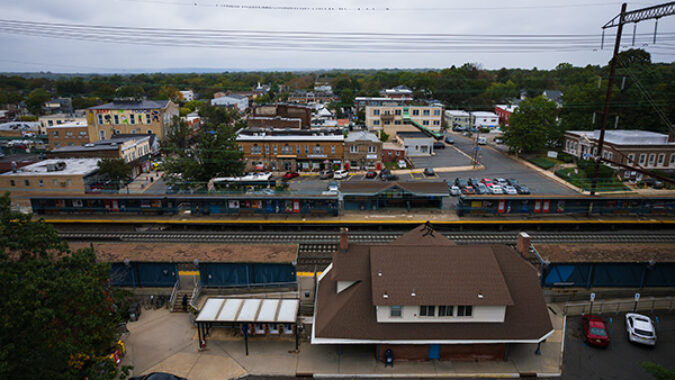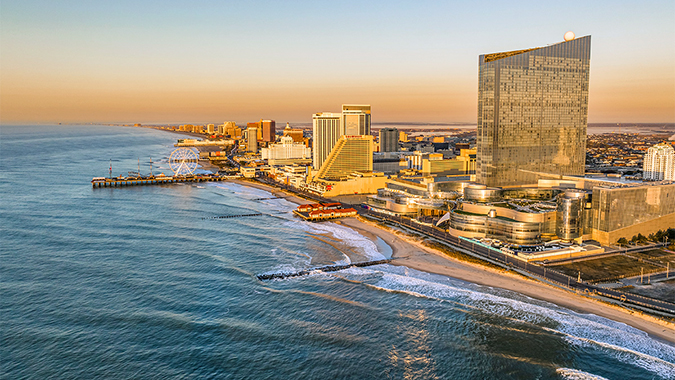The New Jersey Economic Development Authority Board has approved the rules for the Aspire Program, which supports mixed use, transit-oriented development by providing tax credits to commercial and residential real estate projects that have financing gaps.
The rules approved Wednesday take effect immediately for the short term (180 days) so that NJEDA can move forward with the program this year. Concurrently, the NJEDA also approved publishing the rules for public comment prior to adopting longer-term rules.
Aspire is a location-based economic incentive program authorized by the New Jersey Economic Recovery Act (ERA), which NJBIA supported. Aspire replaced the former Economic Redevelopment and Growth Program (ERG).
“The Aspire Program rules approved today establish the framework for a robust policy that will support much-needed mixed use, transit-oriented development in communities all around New Jersey,” said NJEDA CEO Tim Sullivan.
“Importantly, these rules also build in much-needed safeguards to ensure transparency, accountability and fiscal responsibility,” Sullivan said. “This is an important step forward for New Jersey that will drive sustainable, inclusive growth.”
To be eligible for Aspire tax credits, a project must be in an eligible incentive location, which may include: Planning Area 1, Aviation District, Port District, or Planning Area 2 or other Designated Center within a half mile of a rail transit station or a high frequency bus stop. Film production projects may be located anywhere in the state.
Projects must meet minimum size and cost thresholds. Commercial projects must include at least 100,000 square feet of retail or commercial space. Residential projects must have eligible project costs totaling $5 million to $17.5 million, depending on location, the NJEDA said.
The amount of tax credits a project is eligible to receive is a percentage of the project’s eligible costs, subject to a cap that is determined by the project’s location, other financing available, and other aspects of the project. Most projects are eligible for tax credits up to $42 million, but projects that meet specific criteria may receive tax credits up to $60 million. Projects that qualify as “transformative projects” may receive tax credits up to $350 million.
"Transformative projects” must have eligible costs of at least $100 million and be at least 500,000 square feet or up to 250,000 square feet for film studio projects. Transformative projects must also demonstrate special economic importance to New Jersey and leverage New Jersey’s mass transit assets, higher education assets, and other economic development assets to attract or retain employers and skilled workers.
In addition to meeting these baseline eligibility requirements, the developer of a project seeking Aspire tax credits must be in substantial good standing with the New Jersey Department of Labor and Workforce Development (DOL), the New Jersey Department of Environmental Protection (DEP), and the Department of the Treasury.
Projects must also comply with environmental laws (including flood hazard requirements), meet green building requirements, and pay prevailing wages to construction workers and building service workers. Retail, warehouse, and/or hospitality establishments with a certain number of employees that are included in projects with a state proprietary interest and that receive tax credits must enter into a labor harmony agreement with a labor organization or cooperating labor organizations that represent relevant employees in the state.
Collectively, projects under the Aspire Program and the Emerge Program – a separate ERA tax incentive program focused on attracting high-quality jobs to New Jersey – are subject to a program cap of $1.1 billion per year in tax credit awards for each of the first six years of the programs, with the cap split between northern and southern counties. Unused amounts may be carried forward each year, and any remaining unused tax credits are available in the seventh year.
The Aspire Program rules also include requirements to ensure that communities where projects are located participate in and benefit from the economic growth the project generates. As part of the application for projects, applicants must provide a letter of support from the governing body of the municipality or municipalities in which the project is located and projects with an eligible project cost equaling or exceeding $10 million must also enter into a Community Benefits Agreement with the Authority and municipality or county in which the project is located.
Projects including newly constructed residential units must set aside at least 20% for low- and moderate-income households. The NJEDA will build on the coordination and collaboration practices with the New Jersey Housing and Mortgage Finance Agency (NJHMFA) that were established under the ERG program to ensure that Aspire projects with affordable housing components comply with housing rules and meet the housing needs of New Jersey’s growing work force.
In addition to the Aspire Program, the Economic Recovery Act signed into law in January created a suite of economic development programs that include tax credits to incentivize job creation, new construction, and revitalization of brownfields and historic properties; financial resources for small businesses; support for new supermarkets and healthy food retailers in food desert communities; new funding opportunities for early-stage companies in New Jersey; and support for the film and digital media industry.
More information about these ERA programs is available on the NJEDA’s website at https://njeda.com/economicrecoveryact.




